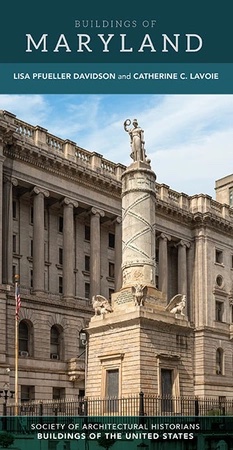
Union Street was the fashionable address for the town’s wealthy professionals and industrialists by the 1840s, remaining so throughout the nineteenth century. Greek Revival and exuberant Queen Anne and Italianate houses predominated along this pleasant tree-lined street. Among the early trendsetters is the physician Thomas Hopkins’s Greek Revival house (c. 1838; 229 N. Union). Hopkins was a graduate of the University of Maryland medical school and served in the Maryland legislature. Built of Port Deposit rock-faced granite, the Spencer-Silver House (1896; 200 N. Union) is an eclectic Queen Anne, arguably the most elaborate in Havre de Grace. Reflecting the wealth of the town’s maritime industries, it was built for John Spencer, the owner of a fish-packing plant, and was later the home of cannery owner Charles B. Silver. The eclectic Vandiver House (1886; 301 S. Union) was built for Murray Vandiver, a member of the Maryland House of Delegates and state treasurer. Blending Queen Anne with elements of the Stick Style is the house (c. 1888; 123 S. Union) built by Louis Vosbury, owner of a lumber and sash mill, for his son as a wedding present. Similar and equally appealing is the adjacent Carver House (c. 1888; 115 S. Union).

